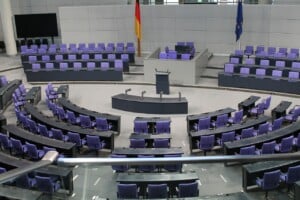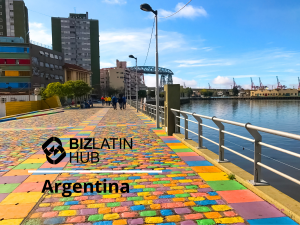Urbanization transforms cities into hubs of innovation and creativity. Smart cities leverage technology to improve the quality of life for residents while addressing urban challenges. This evolution is particularly critical in Latin America, where rapid population growth strains existing infrastructure.
Latin American cities like Buenos Aires, Mexico City, and Medellin are examples of pioneering smart city initiatives. Investments in areas such as sustainability and public safety have become essential as cities seek to enhance urban living. Collaboration among government, businesses, and citizens plays a vital role in this process.
Challenges persist in developing smart cities. Funding and regulatory hurdles can inhibit progress. This article explores the opportunities and challenges facing smart city investments in Latin America.
What are Smart Cities?
Smart cities use digital and telecommunication technologies to enhance resource efficiency. They aim to improve citizens’ quality of life. In Latin America, these cities address challenges in densely populated urban areas. Cities often have populations over ten million. Smart city projects focus on increasing connectivity and operational efficiency. They modernize infrastructure, enhance public safety, and reduce environmental impact. Governments in this region embrace smart technologies. They manage urban growth and deliver better services. Cities like Rio de Janeiro modernize public lighting for safety and sustainability. Smart cities use information and communication technology (ICT) to drive economic growth. They place people at the center of urban development and prioritize citizen welfare.

Importance of Smart City Initiatives in Latin America
Smart city initiatives in Latin America have transformed transportation and infrastructure. Santiago and Bogotá implemented electric bus fleets, improving air quality and reducing emissions. Electric buses can save up to 70% in operational costs versus diesel options. This eases municipal budget pressures. Street lighting upgrades in Chile use energy-efficient LEDs. These upgrades lower energy consumption and enhance urban sustainability. Environmental sensors in Colombia monitor rainfall, water levels, and soil movement. These sensors help mitigate flood risks in vulnerable areas. However, challenges persist. Collaboration with governmental agencies remains limited. This can deter potential investments. Despite this, smart city projects hold vast benefits for the region.
Pioneering Smart Cities in Latin America
Urbanization in Latin America stands at 81%. Such rapid urban growth requires smart city solutions to tackle challenges. Investments in smart city projects continue to rise, with the global market expected to reach USD 1,024.4 billion by 2027. The DATA initiative supports municipal governments, aiding urban infrastructure development. Latin America’s cities engage in smart city initiatives, seeking to improve quality of life and public services.
Buenos Aires
In 2021, Buenos Aires earned the title of the world’s smartest city. Its efforts in urban planning and technology integration began in 2012. The city’s waste management plan reduced indiscriminate waste dumping by 50%, reaching a 100% reduction in 2020. Buenos Aires ensures improved quality of life with a bike-sharing program and public Wi-Fi. Public safety received a boost through a security camera network and a crime-reporting app. Yet, it ranks 115th among Latin American urban centers in urban intelligence.
Mexico City
Mexico City hosts over 22 million residents. The city faces air pollution, traffic congestion, and crime. Smart city methods include a bike-sharing program and a traffic management system. An intelligent lighting system was introduced to reduce energy use and light pollution. With 21,500 free internet spots, Mexico City surpasses high-tech hubs like Tokyo, Seoul, and Moscow.
Medellin
Medellín stands as a model of urban recovery. Once among the most violent cities, it’s now praised for social urbanism. Iconic projects like the Comuna 13 escalator enhance connectivity. Green spaces and public spaces get revitalized along the Medellín River, making the city vibrant. Medellín uses data insights to improve daily life with smart applications. It promotes eco-friendly transport and environmental awareness. The ongoing smart city plan focuses on innovation and quality of life.
Santiago
Santiago, Chile, leads Latin America in smart city development. The “Santiago Ciudad Inteligente” program, launched in 2015, supports advances in mobility and safety. Sensor data manages irrigation, reducing water waste. An electric transit system with 411 buses reduces air and noise pollution. These buses help offset nearly 1,400 deaths projected by 2030. Santiago’s projects emphasize sustainability, featuring real-time transportation systems and electric vehicle adoption.
Curitiba
Curitiba shines as Brazil’s green capital. It won the latest Smart City Award for its sustainable urban designs and low-carbon initiatives. Its bus rapid transit system inspires cities worldwide in urban transport. Curitiba aims to become carbon-neutral by 2050. The city’s Speak Curitiba program involves residents in budgeting, fostering community participation.
Fundamental Pillars of Smart Cities
Smart cities in Latin America focus on integrating technology to solve urban issues. This approach uses data to manage resources and services, improving residents’ quality of life. Cities like Curitiba demonstrate the importance of collaboration with initiatives like the “Speak Curitiba” program, which allows residents to influence budgetary choices. Urban centers face challenges from rapid urbanization, prompting the use of technological solutions to address infrastructure and service demands. The inclusion of social elements is vital, ensuring innovations remain sustainable and widely accepted.
Sustainability
Latin American smart cities prioritize environmental sustainability. Santiago, Chile, has introduced 411 electric buses. These buses reduce air and noise pollution and are 70% cheaper compared to diesel models. This public transport shift could prevent 1,400 deaths by 2030, as stated in a United Nations report. Rio de Janeiro’s Smart Rio Project aims to overhaul public lighting, cutting energy use by 60% and reducing light pollution. Curitiba incorporates sustainable practices through green urban designs and energy-efficient transport, emphasizing environmental education.
Public Safety
Ensuring public safety is a priority for smart cities. They use Artificial Intelligence and IoT to enhance emergency responses. Medellin, Colombia, stands out for its integrated emergency system using data from calls and cameras. This system boosts its efficiency during emergencies. Rio de Janeiro is modernizing its lighting to cut accidents and street crimes. Santiago’s electric buses lower pollution, providing a safer urban environment. By upgrading infrastructure, smart cities offer healthier and safer living conditions.
The Role of Stakeholder Collaboration
Stakeholder collaboration is key to developing smart cities in Latin America. Alliances among governments, private companies, and residents help in sharing resources and knowledge. Curitiba’s success in smart city projects shows the value of collaborative work. Residents there participate in budgeting through the Speak Curitiba program. Smart City Expo events in Latin American cities promote collective engagement and foster ideas for smarter urban environments. Effective collaboration allows cities to tailor smart solutions to their unique challenges. This ultimately enhances citizens’ quality of life.

Government
Governments in Latin America are pivotal in smart city development. Collaborative initiatives like the DATA for Cities Initiative empower municipal governments through technology. The Bogotá Smart Territory 2023-2032 policy aims to make Bogotá a smart city by leveraging data. Increased government initiatives aim to tackle urban challenges and improve citizens’ lives. The Smart Rio Project in Brazil seeks to modernize infrastructure, enhancing public safety and sustainability. Educational programs are essential to foster trust and participation in urban technologies among citizens.
Businesses
Businesses play a crucial role in smart cities. The Latin American approach combines innovative technology with a social focus. Investing in smart city technologies can attract businesses and spur economic growth. Yet, private funding faces hurdles due to novel technologies lacking proof of concept. Smart city technologies offer benefits like cost reduction through renewable energy adoption. The push for smart city innovation aligns with ESG goals and public safety. It opens new opportunities for the private sector, stressing the need for investment.
Citizens
Citizen involvement is vital for smart city success. Education and information build trust in urban technologies. Medellin’s transformation testifies to this, as residents improve mobility and environmental conditions through sustainable transportation systems. Barranquilla’s “Laboratorio de Ciudad” educates citizens about smart urban interaction. Buenos Aires hosts events on science and technology to empower residents for smart city development. Integrating smart technologies boosts citizens’ quality of life through enhanced public amenities. Effective citizen engagement ensures the success of these advancements.
Challenges Facing Smart City Development
Smart city development in Latin America faces several hurdles. Rapid urbanization contributes significantly, with the UN estimating that 90% of the population will inhabit megacities by 2050. This growth leads to issues such as poverty, insecurity, pollution, and mobility challenges. Although smart city projects can boost public safety and quality of life, large-scale implementation remains limited. Investors show reluctance due to uncertainties about the benefits of early-stage smart technologies. Policymakers understand that these technologies can optimize resource management. However, aggregating projects for significant investment remains a challenge. The push for energy efficiency and ESG goals increases interest from both government and private sectors.
Funding and Investment Issues
Smart city projects require significant initial investments. These can be sourced from government funds or private financing. International finance bodies may offer loans, grants, and guarantees. However, creating bankable projects is challenging, with municipalities often recovering investments through taxes. Partnerships with government agencies can further complicate funding. Local taxes and budgets present hurdles for financing smart city initiatives.
Regulatory Hurdles
Robust data privacy regulations are crucial for smart city initiatives. Citizen participation is necessary, emphasizing public-friendly laws. Collaboration between government, investors, and residents is key to overcoming regulatory barriers. The swift rollout of 5G technology is vital for reducing digital divides. Yet, complex regulations can slow the implementation of smart urban innovations.
Infrastructure Needs
Investing in smart city infrastructure can improve power grids and internet access. This is important for economic growth in low-income areas. Technological advancements in transportation help create equitable cities, connecting residents to urban centers. Poor transport is a significant issue in Latin American cities, requiring smart solutions for efficiency. Smart technology can identify infrastructure needs, highlighting roads and bridges that need attention. Integrating waste management solutions can improve life quality in dense cities like Buenos Aires.
Key Sectors for Investment in Smart Cities
Smart cities in Latin America leverage ICT to optimize urban functions, promote growth, and improve welfare. Investment in smart infrastructure supports reliable power grids and expands Internet access. This fosters economic growth in low-income areas. Technological advancements in public transport, like electric buses, cut pollution and operating costs. Initiatives like Medellin’s emergency system use AI and IoT to enhance safety. Collaboration among governments, companies, and academia is crucial for smart projects.
Governance
Urban management is key due to smart cities’ rise in Latin America. By 2021, 81% of the population lived in urban settings. Successful projects require citizen involvement, leading to better acceptance and execution. City rankings motivate mayors to enhance urban areas. Effective collaboration among stakeholders, exemplified by Curitiba, Brazil, is fundamental for project development and execution.
Environment
Latin America, home to major green lungs, also faces high megacity pollution. Medellin prioritizes eco-friendly transit and environmental awareness. Electric buses decrease pollution and cut costs by 70% compared to diesel buses. Municipal leaders must commit to renewable energies for better utility reliability. Cities like Cuenca and Trujillo benefited from IDB consultants for urban environmental management.

Economy
Smart city technologies stimulate economic growth by investing in crucial infrastructure. Urban innovation seeks solutions for rapid urbanization challenges. Projects enhance operational efficiency and connectivity, improving service delivery and infrastructure. Smart cities aim to optimize functions, promoting growth by improving services and welfare. A people-centered design addresses socioeconomic pressures and disparities.
Mobility
Urban mobility in Latin America transforms with contactless payments and license readers on buses. Santiago, Chile, leads with transportation tech like real-time info systems and electric vehicle initiatives. Medellin’s smart mobility integrates varied public transport options, boosting access. Rio de Janeiro’s Smart Rio Project modernizes lighting to enhance safety and cut energy use. Santiago operates 411 electric buses, marking sustainable transit solutions.
Citizenship
Municipal discussions improve services and coexistence. Smart government focuses on electronic services and transparency for citizen involvement. Speak Curitiba exemplifies active participation in budgeting. Technology integration boosts urban quality of life. Mayors improve smart city status, enhancing social interactions.
Lifestyle
With 80% urbanization, smart city solutions enhance living conditions. ICT lifts marginalized groups by improving resource access and addressing environmental issues. Technological advancements in public transport address long commutes. Public safety tech, such as gunshot detection, enhances urban security. Smart city initiatives optimize city functions, improving life quality with sustainable resource use and infrastructure management.
Interactive Experiences and Technological Advancements
Latin American cities are embracing technological advancements to improve urban living. Buenos Aires has a bike-sharing program, public Wi-Fi, and real-time transport updates. These smart technologies enhance daily life. Santiago, Chile, uses sensors to prevent water waste in parks. This shows innovative resource management.
The Smart Rio Project in Rio de Janeiro focuses on public lighting. This initiative improves safety and reduces energy use, countering light pollution. Curitiba, Brazil, involves residents in budget planning through Speak Curitiba. This program fosters community participation in smart city initiatives. In Barranquilla, Laboratorio de Ciudad educates citizens on technology. Buenos Aires’s Parque de la Innovación does the same. These programs highlight the commitment to integrate technology and environment within urban areas.
Importance of Technology in Urban Living
Latin America has a high urbanization rate. About 80% of people live in cities. This provides a chance for smart city technology. Integrating smart tech in urban centers manages resources better. It improves the quality of life for residents. Smart city projects focus on people. They ensure social needs are met, making initiatives sustainable.
Cities like Medellín offer open data access. Both public and private sectors use this to craft innovative solutions. These aim to enhance residents’ lives. Smart methods optimize resource use. They address public safety, health, and sustainability issues effectively.
Below is a list of smart city projects in Latin America:
- Buenos Aires: Bike-sharing program, public Wi-Fi, real-time transport system.
- Santiago, Chile: Sensors for water management in parks.
- Rio de Janeiro: Smart Rio Project focusing on public lighting.
- Curitiba, Brazil: Speak Curitiba program for resident involvement.
- Barranquilla: Laboratorio de Ciudad for tech and environment education.
- Buenos Aires: Parque de la Innovación for public learning.
Smart city solutions in Latin America are paving the way for improved urban life, addressing crucial issues and embracing technological growth.
Importance of Technology in Urban Living
Latin America leads global urbanization with 80% of its people in cities. This creates significant opportunities for smart city technologies. Integrating smart technology improves resource and service management. It enhances life quality for residents.
Smart city projects in Latin America prioritize people-centric designs. These focus on social factors to ensure sustainability. Medellín, for example, uses open data access. This enables innovation by public and private sectors, improving daily life.
Smart city solutions address problems like public safety, health, and the environment. Advanced technology optimizes resource use. This boosts urban centers’ efficiency and sustainability.
Benefits of Smart City Technologies
- Improved resource management
- Enhanced quality of life
- Sustainable urban growth
Using technology in urban development is crucial. It helps cities remain liveable and efficient. As technology advances, more cities will become smarter and safer.
Supporting Smart City Investments in Latin America
Developing smart cities requires businesses to navigate legal and regulatory requirements, manage tax obligations, and establish efficient HR practices. Biz Latin Hub provides essential services that support businesses involved in smart city projects.
Our legal compliance services ensure alignment with local laws, while our accounting and tax solutions simplify financial management. We also offer PEO services to help businesses hire and manage local talent efficiently.
By addressing administrative and compliance challenges, we enable businesses to focus on contributing to smart city advancements. Contact Biz Latin Hub for expert guidance in Latin America’s growing smart city sector.





